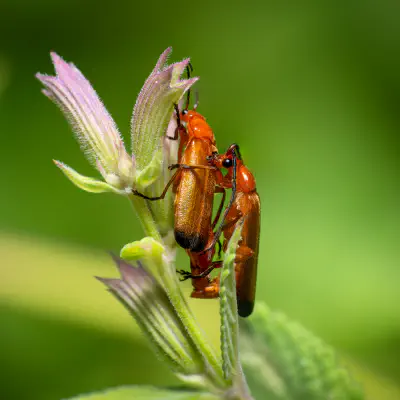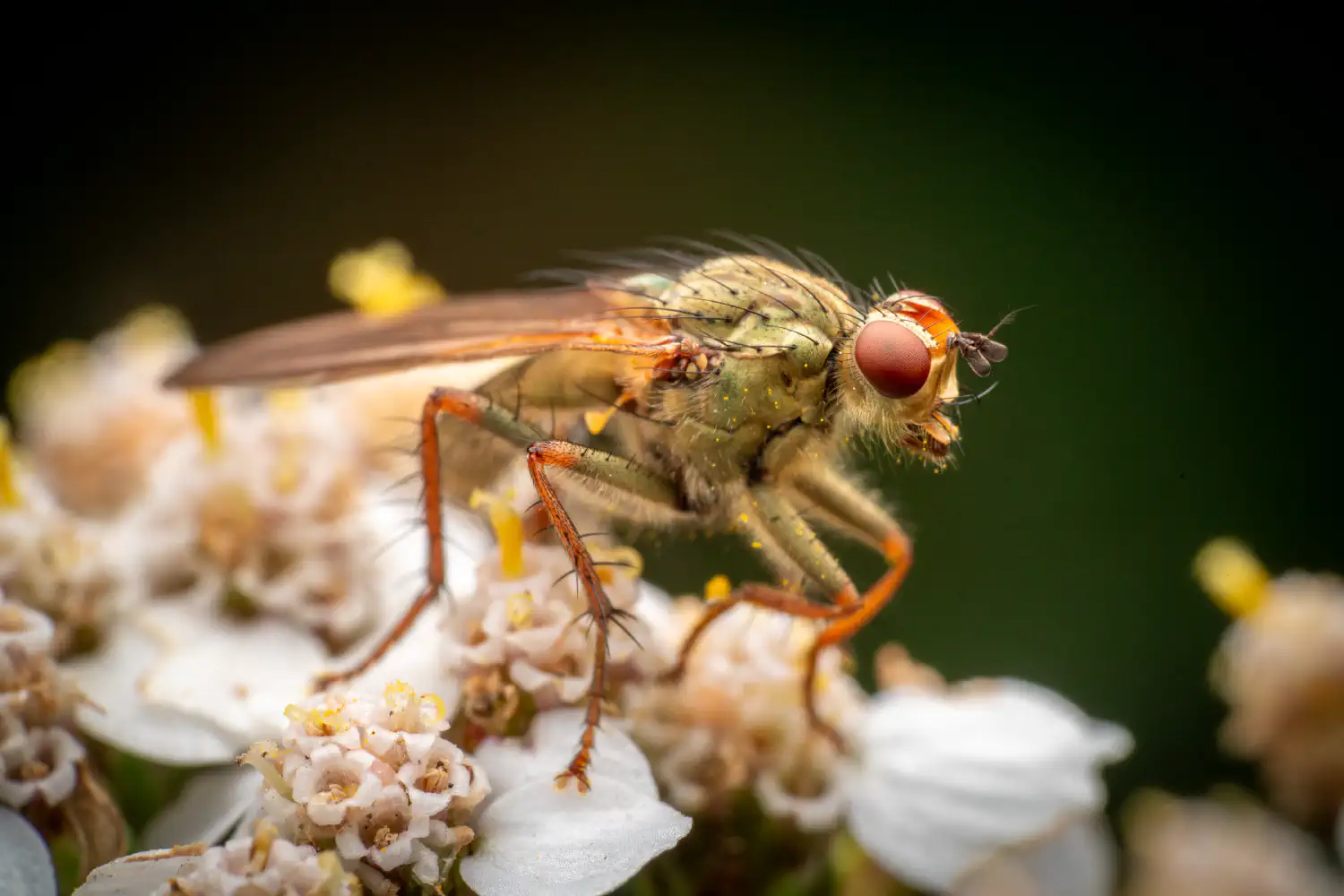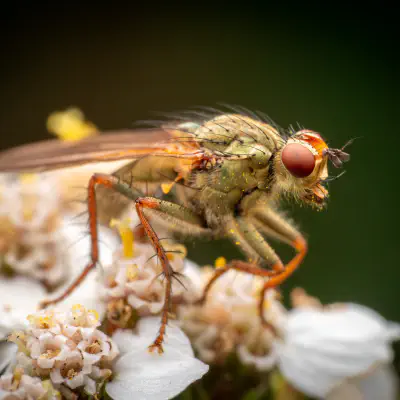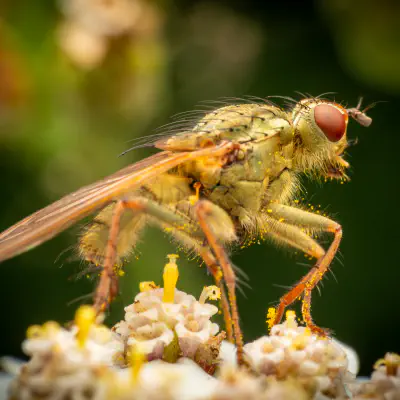Arthropods Daily – Issue No. 248 No. 248 |
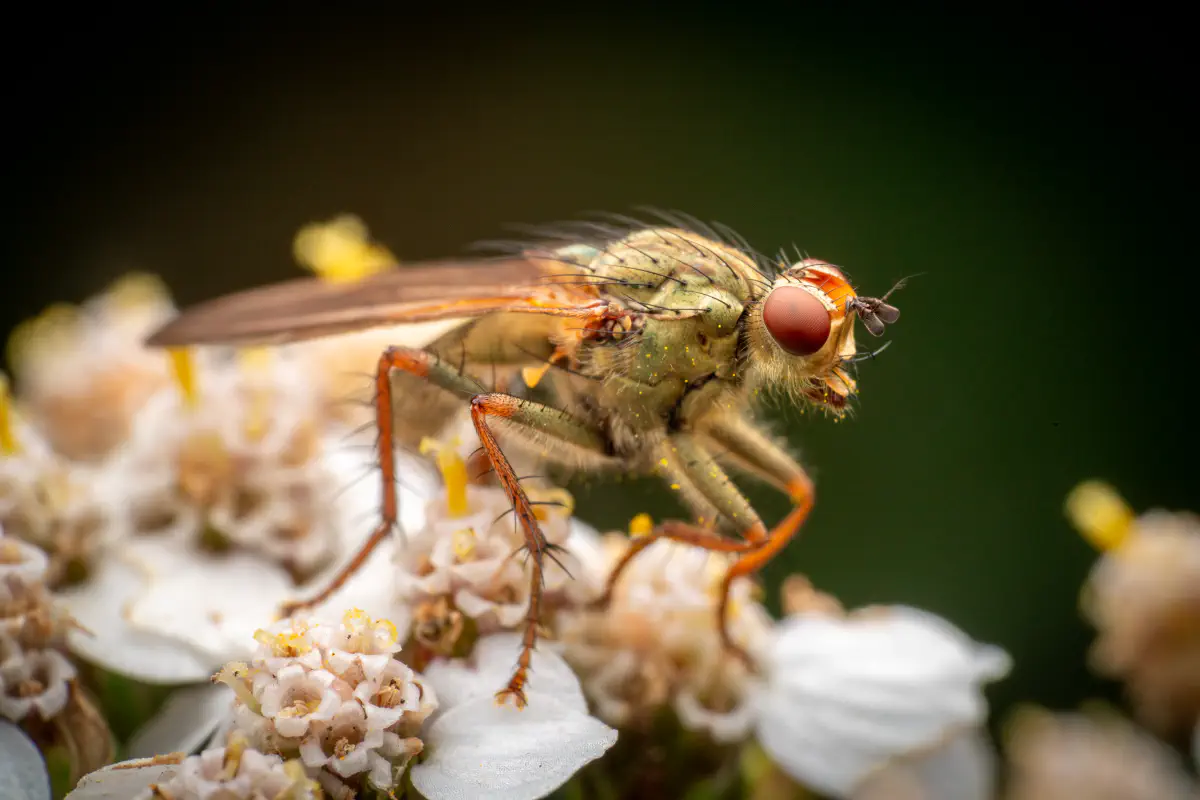
Scathophaga stercoraria, commonly known as the yellow dung fly or the golden dung fly, is one of the most familiar and abundant flies in many parts of the Northern Hemisphere. As its common name suggests, it is often found on the feces of large mammals, such as horses, cattle, sheep, deer, and wild boar, where it goes to breed. The distribution of S. stercoraria is likely influenced by human agriculture, especially in Northern Europe and North...
Ancestry Graph
%%{
init: {
'theme': 'base',
'themeVariables': {
'primaryColor': '#83a09c',
'primaryTextColor': '#212d2b',
'primaryBorderColor': '#fff',
'lineColor': '#fff',
'secondaryColor': '#006100',
'tertiaryColor': '#fff'
}
}
}%%
flowchart LR
classDef active fill:#fff
arthropods("phylum: Arthropods"):::active
arthropods-->insects("class: Insects"):::active
insects-->brachyceran-flies("suborder: Brachyceran Flies"):::active
brachyceran-flies-->dung-flies("family: Dung Flies"):::active
dung-flies==>golden-dung-fly(["species: Golden Dung Fly"]):::active
click golden-dung-fly href "/en/catalogue/arthropods/insects/brachyceran-flies/dung-flies/golden-dung-fly/"
click arthropods href "/en/catalogue/arthropods/"
click insects href "/en/catalogue/arthropods/insects/"
click brachyceran-flies href "/en/catalogue/arthropods/insects/brachyceran-flies/"
click dung-flies href "/en/catalogue/arthropods/insects/brachyceran-flies/dung-flies/"
This is not intended to be a dry lexicon. Personal stories and sensitive articles form the framework for our pictures: „Dating site“
Gabriel Glowworm is doubtful about modern dating sites and reflects wistfully on the days when a simple glow was enough to find love.
